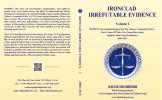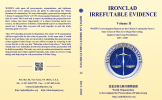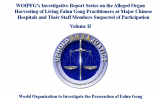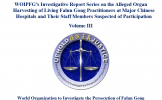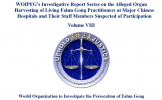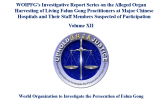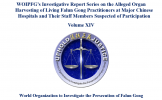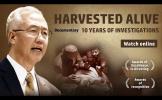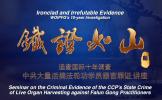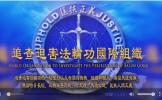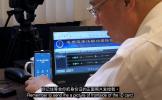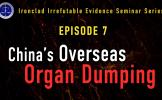Zhu Jiye
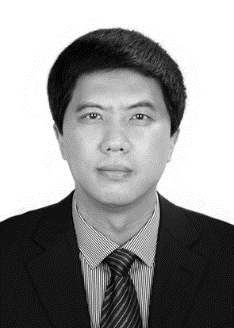
Zhu Jiye, male, chief surgeon, director of the Beijing University Organ Transplantation Institute, director of the Beijing University Liver Cancer Diagnosis and Treatment Center, director of the Hepatobiliary Surgery Department of Beijing University People's Hospital, director of the Organ Transplantation Center of Beijing University International Hospital, and director of the Beijing Key Laboratory of Liver Cancer and Cirrhosis. He is also the deputy leader of the Liver Cancer Group of the Chinese Medical Association Oncology Society, the deputy leader of the Liver Transplantation Group of the Chinese Medical Association Organ Transplantation Society, the deputy leader of the Organ Transplantation Group of the Chinese Medical Association Surgery Society, the deputy leader of the End-Stage Liver Disease Group of the Chinese Medical Association Hepatology Society, the director and deputy secretary-general of the China Organ Transplantation Development Foundation, the vice president of the Organ Transplantation Branch of the Chinese Medical Doctors Association, and the member at director level of the Tissue and Cell Transplantation Professional Committee of the Organ Transplantation Surgeon Branch of the Chinese Medical Doctors Association[1]. He was a postdoctoral fellow at the University of Texas Medical Center in the United States from 1997 to 1998, and a visiting scholar at the Rush Liver Transplantation Center in Chicago. He has been engaged in medical, scientific research and teaching work in the field of liver transplantation.[2]
The Beijing University Organ Transplantation Center (hereinafter referred to as the Center) led by him is the predecessor of the Beijing University Organ Transplantation Research Institute (hereinafter referred to as the Institute). It was established in October 2001 under the personal guidance of Han Qide, thethen Vice Chairman of the Standing Committee of the National People's Congress of the Communist Party of China. It was jointly formed by five medical institutions affiliated with Beijing University, including Beijing University First Hospital, People's Hospital, and Third Hospital.[3] The hospital claims that the center is currently the largest and most academically advanced organ transplantation medical institution in China. At present, the center has become one of the most influential organ transplantation centers in China, and it is in a leading position in many aspects in China.[4] The center conducts medical and scientific research including liver transplantation, kidney transplantation, pancreas transplantation, heart transplantation, corneal transplantation, and bone marrow transplantation.[5] The development of the hospital's organ transplantation is synchronized with the persecution of Falun Gong by the Chinese Communist Party.
In Sep. 2013, Zhu Jiye[6], the head of Beijing University Organ Transplantation Research Institute and the director of the Hepatobiliary Surgery Program at Beijing University People’s Hospital, said in an interview with China Economic Weekly, “Before the pilot project started in 2010, the organs from executed prisoners accounted for almost all donor sources in China. Our hospital once performed 4,000 liver and kidney transplants within one year.[7] According to Amnesty International, the average number of executed prisoners between 2000 and 2005 was 1600 per year [8] , while this hospital did 4000 cases of liver and kidney transplants in one year. As Ye Qifa said, there were up to over 1000 hospitals that could perform organ transplant in 2007[9]. The number of executed death-row-inmates was far behind from the need of such surgeries. However, in an interview with the CCTV in July 2018, Huang Jiefu said that the quality of executed prisoners’ organs was very poor, and the requirements for organ sources were very strict, so it was impossible to obtain suitable organs on the execution ground.[10]That indicates there are other donor sources. The Falun Gong practitioners, not protected by law in China, could very well become the major sources.
Refenece
[1] Profile of Zhu Jiye. Guahao.com(hospital online). http://archive.is/nX0h8
[2] Profile of Zhu Jiye. Baike.com. http://www.baike.com/wiki/%E6%9C%B1%E7%BB%A7%E4%B8%9A
[3] Peking University Health Science Center Hospital News. (2013, December 3). Peking University People's Hospital Hosts the 2nd Organ Acquisition Organization Training and Organ Transplant Policy Training Conference. Information Weekly, Vol. 21.
https://web.archive.org/web/20140418005944/http://dxb.bjmu.edu.cn/art/2013/12/3/art_12568_91407.html
[4] Peking University Health Science Center Hospital News. (2013, December 3). Peking University People's Hospital Hosts the 2nd Organ Acquisition Organization Training and Organ Transplant Policy Training Conference. Information Weekly, Vol. 21.
https://web.archive.org/web/20140418005944/http://dxb.bjmu.edu.cn/art/2013/12/3/art_12568_91407.html
[5] Peking University Health Science Center Hospital News. (2013, December 3). Peking University People's Hospital Hosts the 2nd Organ Acquisition Organization Training and Organ Transplant Policy Training Conference. Information Weekly, Vol. 21.
https://web.archive.org/web/20140418005944/http://dxb.bjmu.edu.cn/art/2013/12/3/art_12568_91407.html
[6] Surgeon Profile of Zhu Jiye. Guahao.com. http://archive.is/nX0h8
[7] China Economic Weekly. (2013, September 3). Expert: the reduction source of organs from executed prisoners will increase the number of patients waiting for treatment. Xinhuanet.com. http://news.xinhuanet.com/legal/2013-09/03/c_125305093.htm
WOIPFG archive:
http://www.zhuichaguoji.org/cn/images/nationalcriminalreports/301.png
[8] Matas, D. & Kilgour, D. (2006, July 6). Report into Allegations of Organ Harvesting of Falun Gong Practitioners in China. Organ Harvest Investigation. http://organharvestinvestigation.net/report0607/report060706-eng.pdf
[9]People.com.cn. “Hepatobiliary Disease Research Institute of Wuhan University: Organ Transplantation Races with Time”. April 25, 2015. http://hb.people.com.cn/n/2015/0425/c337099-24632343.html
[10] CCTV. “[Face to Face] Huang Jiefu: Be in awe of life.” Archived webpage: http://archive.is/4iusB (July 16, 2018)


